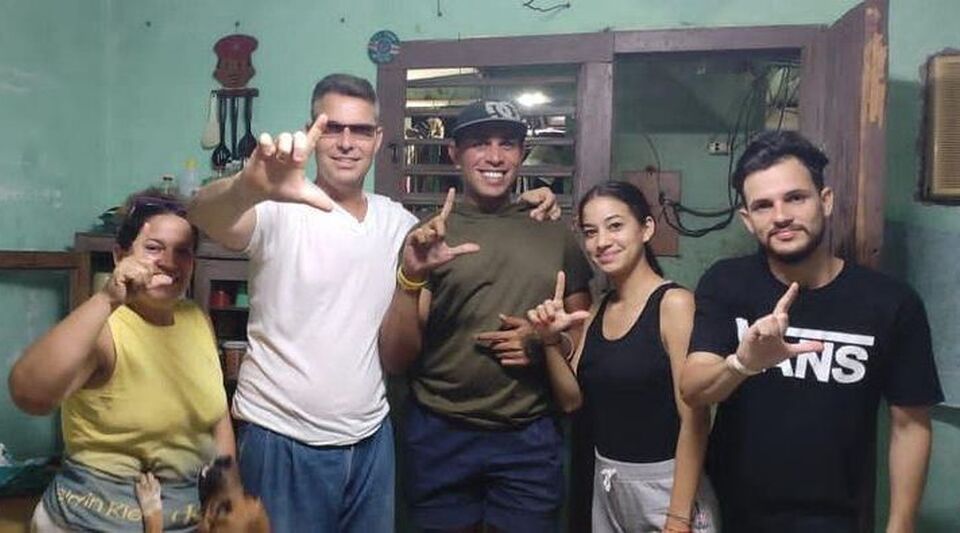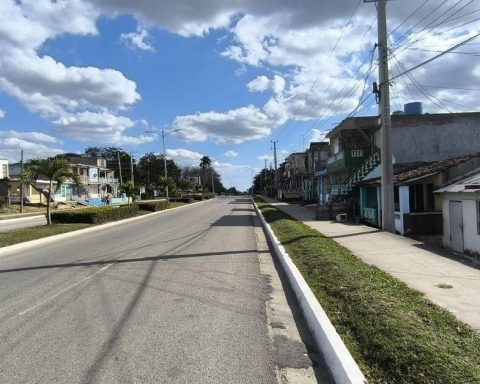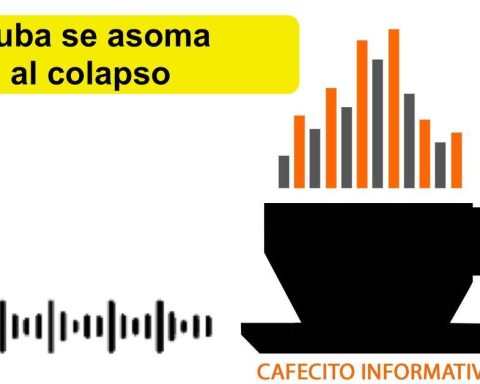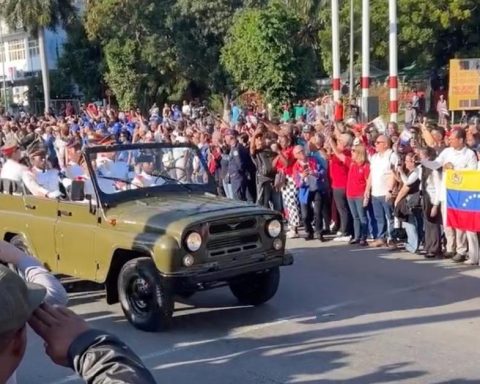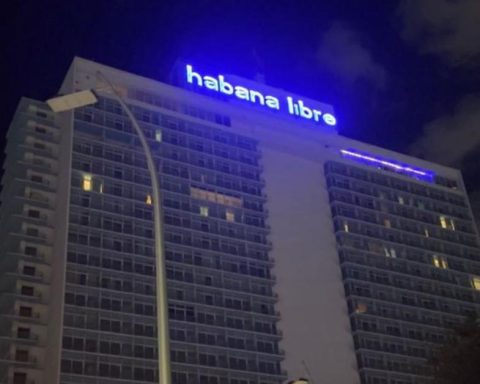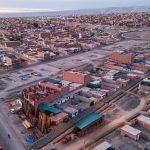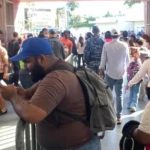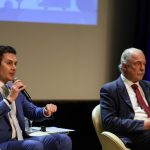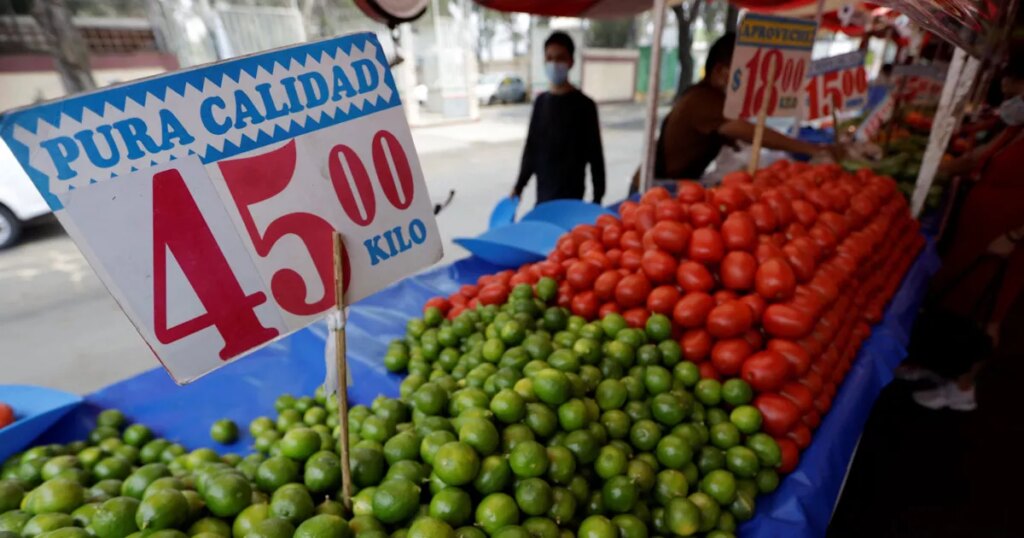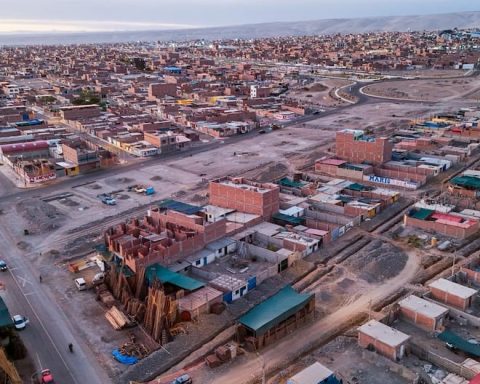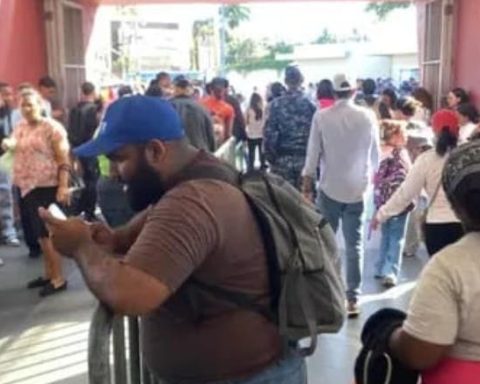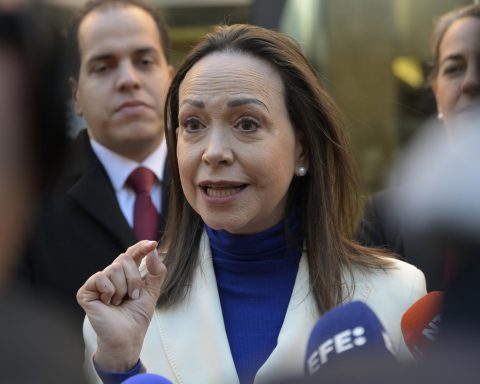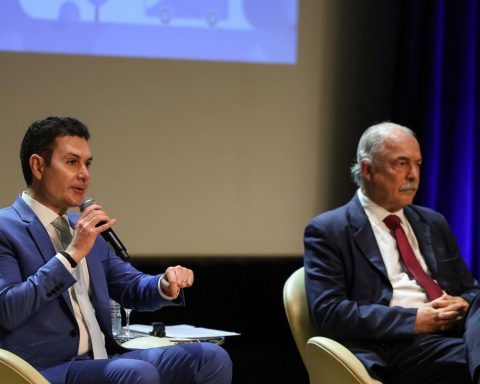Without the help of charitable organizations and private donors, inmates would be on the brink of starvation in Cuban prisons, where they receive the bare minimum to survive from the state. “Contributions have decreased a lot lately,” laments Jonatan López, brother-in-law of the political prisoner Andy Garcia Lorenzowhich inspired the initiative Funds for Victims of Communism. “We got to have up to 110 beneficiaries, but now we have resources for only about 44 detainees.”
“We are a bridge to deliver food to prisoners in Cuba: we receive small donations from people who are sensitized to the cause and we help low-income families,” explains Jonatan López in conversation with 14ymedio.
“Andy knew what it was like to go to bed hungry, unable to get enough of the small amount of food they are given in prison,” says López. On each visit, they say, they tried to bring the young man everything he needed. “But he always asked for more, because he wanted to share his food with the others.”
Funds for the Victims of Communism –promoted on social networks under the name Aid to the brave of 9/11– is in charge of raising money so that families can provide prisoners with food, toiletries, cigarettes and everything they need during his seclusion.
The economic crisis on the island and the increase in the cost of food and basic necessities have had a negative impact on the situation of the prisoners
The economic crisis on the Island and the increase in the cost of food and basic necessities have had a negative impact on the situation of the prisoners, for whom it is difficult to provide a pack of supplies during family visits.
The visibility of the García Lorenzo family, as a result of the multiple complaints made by its members, contributed to the project gaining notoriety and interest from donors. After initially refusing to send money, they decided – in December 2021 – to create a structure to collect funds.
The initial recipients were 15 families of political prisoners in Villa Clara, but the direct transmissions of Roxana García Lorenzo –Andy’s sister– and the denunciations of other activists allowed the number of donations to increase and the organization’s reach to be expanded.
At the moment, the funds are allocated to the families of 44 inmates from the western and central regions of the Island, to whom 3,000 pesos a month are deposited on their cards to buy products to cover their basic needs. The same amount has been given, at least once, to 110 prisoners.
Jonathan Lopezrecently exiled in Germany, exposed 14ymedio that “to assist 110 prisoners, a monthly income of between 4,500 and 5,000 dollars should be received, to distribute 6,000 pesos to each prisoner.” “And even then, the needs are not fully met, but it would be a huge relief for those families who, in many cases, have been left without their main economic support,” he said, alluding to the fact that the work of many of the young people arrested was the one who supported his relatives.
The García Lorenzos administer the funds and ensure that they are distributed fairly. The activist Samuel Rodríguez Ferrer, resident in the US, is in charge of managing the PayPal and Zelle accounts opened to receive donations, which are then sent in their entirety to Cuba, without subtracting administrative expenses or promotion of the initiative. Ways have been found, says the activist, so that “the dictatorship does not access this currency” at the time of the transfers.
In addition, as they clarify on their website, the organization “is not political, nor is it affiliated with any party, organization or government. We do not receive federal subsidies from the United States, nor from any other country. Donations come from individuals or independent companies ” .
Jonatan López records the shipments in a public Excel document, to guarantee transparency, while Pedro López, his father –also an asylum seeker in Germany–, and his wife, Roxana García, from Santa Clara, are responsible to manage the organization. Through different channels, with the help of people who travel to the Island, the money reaches the families of the inmates.
“This project is so that they don’t feel alone, and they know that there are people outside and inside helping them,” Pedro López explains to 14ymedio. “You go against the dictatorship, they try to isolate everyone who disagrees, and one of the ways is to tell them that they are alone. They try to demoralize them,” he says.
Despite the exile of both, Pedro and Jonatan López took measures so that the project did not stop. Until now, they say, State Security has not confiscated their supplies, which in some cases are transported on national buses.
The organization’s work has not been without controversy. Several opponents have opined that the project “accommodates the relatives of the prisoners”, which prevents them from “protesting” for the freedom of their relatives
“It is not difficult to work from outside: we created an infrastructure made up of the same relatives, so that it would not stop when we left,” argues Pedro López.
The organization’s work has not been without controversy. Several opponents have opined that the project “accommodates the relatives of the prisoners”, which prevents them from “protesting” for the freedom of their relatives. These criticisms “do not make sense,” says Jonatan López. “The funds hardly alleviate the situation of the families and, furthermore, the prisoners are not to blame for not taking a ‘frontal position’ against the regime at home.”
“We believe that it is unfair that they are deprived of this help, which is only the most basic, food, because their family does not want to protest,” added the young man who, exiled in Germany due to pressure from State Security, confirmed to this newspaper their willingness to continue working on the project, twinned with other initiatives such as Te presto mi voz, Justicia 11J, Where you fall I lift you up, and the Accompaniment Groups of the Cuban Conference of Religious (Concur).
For her part, Roxana García – known for the strong complaints to the Government for the harassment of her brother – remains in Cuba, together with her parents, to continue demanding her freedom and that of the almost 1,000 political prisoners on the island.
Several relatives of prisoners have expressed their gratitude to the Funds for the Victims of Communism. Yanet Rodríguez from Holguin pointed out that the project has provided “help to the eastern part of the country”, since most initiatives of this type are concentrated in the western region or the main cities of the island.
Saily Núñez, wife of protester Maykel Puig, described the organization’s work as “extremely transparent”, while Niurka Ricardo, mother of prisoner Mario Josué Prieto, described the project as “something extraordinary and very human”, since it guarantees the food and medicines that are sent in the “jabita” to the inmates.
________________________
Collaborate with our work:
The team of 14ymedio He is committed to doing serious journalism that reflects the reality of deep Cuba. Thank you for accompanying us on this long road. We invite you to continue supporting us, but this time becoming a member of our newspaper. Together we can continue transforming journalism in Cuba.
